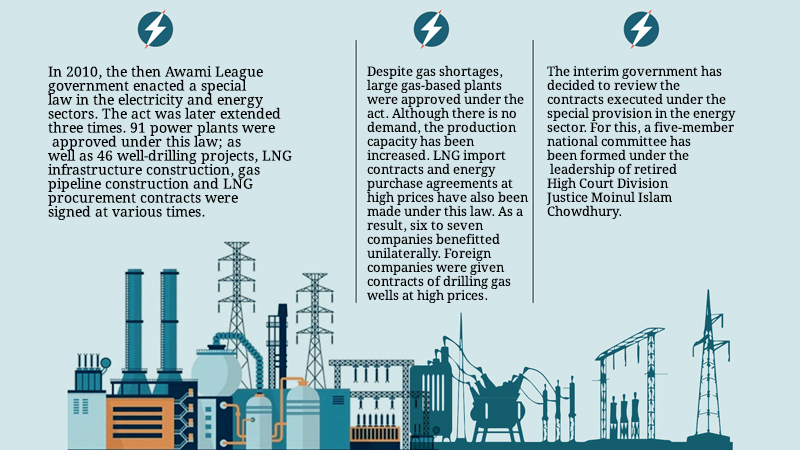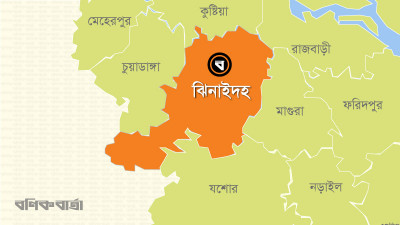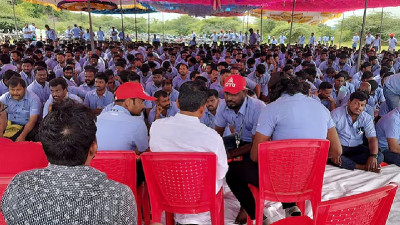 Photo: Bonik Barta
Photo: Bonik Barta The
government has decided to review agreements made in the energy sector under a
special provision passed during the tenure of the Awami League government in
2010. The law is known as the ‘Quick Enhancement of Electricity and Energy
Supply (Special Provision) Act 2010’. It facilitated the implementation of
several mega projects, with some still ongoing. The interim government has now
opted to reassess the agreements executed under this law.
A
five-member national committee has been formed under the leadership of retired
High Court Division Justice Moinul Islam Chowdhury to carry out this review.
Yesterday (Thursday, September 5), the Ministry of Power, Energy, and Mineral
Resources issued a notification regarding the committee’s formation. Following
this, the ministry also sent out a press release outlining the details.
According
to the press release, Justice Moinul Islam Chowdhury has been appointed as the
convener of the national committee. The other four members are Professor Abdul
Hasib Chowdhury from the Electrical and Electronic Engineering Department at
BUET, former COO of KPMG Bangladesh Ali Ashraf, former World Bank Lead
Economist Dr. Zahid Hussain, and Professor Mushtaq Husain Khan from the Faculty
of Law and Social Sciences at the University of London.
The
ministry outlined that the national committee would be able to gather data from
any source and audit any necessary documents. It will also have the authority
to summon individuals or organizations for hearings. The committee will review
whether the agreements made under the 2010 Quick Enhancement of Electricity and
Energy Supply Act (amended in 2021) safeguarded the government’s interests.
Based on the audit findings, it will formulate recommendations for future
actions. The Ministry of Power, Energy, and Mineral Resources will provide
secretarial and logistical support to the committee.
A
committee member, speaking on condition of anonymity, told Bonik Barta, “The
committee has just been formed. The members will meet to discuss the scope of
work. And then it would be possible to determine whether there are any specific
instructions from the government. It’s too early to provide any further details
at this stage.”
The
special provision was initially introduced to address the country’s energy
crisis, but it has faced strong criticism since its inception. Although it was
initially meant to last two years, its tenure has been extended three times, now
set to expire in 2026. The provision leaves no room for legal challenges
regarding procurement or infrastructure development in the energy sector. This
has led many to label it as the ‘Indemnity Law’ for the energy sector.
There
are allegations that several unfair agreements were made under this law,
benefiting individuals linked to the Awami League government and those in close
proximity to power. While these individuals reportedly profited significantly,
the country’s power and energy sectors have suffered losses. Due to the
protections provided by the law, no one has been held accountable so far.
Experts
have welcomed the formation of a national committee to review contracts undertaken
in the energy sector under this special law. According to them, this decision
is timely, as the public has the right to know what these agreements entail.
Energy
expert and former BUET professor Ijaz Hossain told Bonik Barta, “The
government’s initiative to review these contracts is certainly a positive step.
Without this, we wouldn’t truly understand what these agreements involved.”
According
to data from Power Cell, an electricity policy and research organization,
Bangladesh currently has 152 power plants. Of these, 125 were constructed
during the Awami League’s tenure from 2009 to 2024. Among them, 91 plants were
built under the special law.
It
was under this law that in 2010, the country approved quick rental power plants
on a large scale. These plants, initially intended for three to five years,
have been operational for 10 to 15 years. Over the past decade and a half,
private sector power projects have been awarded without any competition, under
this law. While the country’s power generation capacity has increased, the
Bangladesh Power Development Board (BPDB) has suffered severe financial losses
year after year.
A
research report by the Bangladesh Institute of Development Studies (BIDS) on
the power sector, published in August 2022, revealed that the state incurs an
annual financial loss of nearly $1 billion due to purchasing electricity at
inflated prices from private power producers.
The
study, based on a review of electricity purchased from 58 private power plants
between 2004 and 2017, further noted that costs have skyrocketed because
agreements were not made competitively with certain private power plants. The
price of electricity increased by 15 percent solely due to the provision of
government land leases to these plants. Additionally, under contracts with
expensive rental power plants, the government must pay a capacity charge for 60
percent of their production capability, even if they are not generating
electricity. This setup allows the plants to make higher profits without
producing power.
Various
projects, including the construction of LNG terminals, gas well drilling, pipeline
construction, and equipment procurement, have been implemented in the energy
sector under the special law. However, the exact number of such projects
remains unknown. Among them are 46 gas well drilling projects. Allegations
suggest that some of these projects were awarded to Chinese and Russian
companies at inflated prices.
The
interim government, upon taking office, suspended all ongoing activities under the
‘Quick Enhancement of Electricity and Energy Supply (Special Provision) Act
2010 (Amended 2021)’ on August 18. Through an ordinance, the section 34(Ka) of
BERC Act was repealed, restoring Bangladesh Energy Regulatory Commission’s (BERC)
authority to set gas and electricity prices through public hearings.






